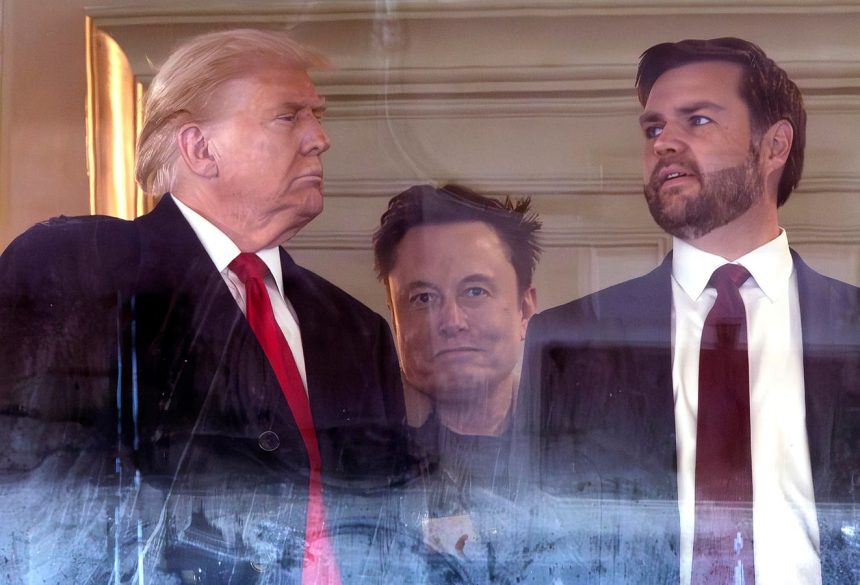The Curious Case of "President Musk": A Deep Dive into Elon Musk’s Influence and Trump’s Response
The political landscape has witnessed a peculiar phenomenon in recent times – the perceived influence of Elon Musk, the world’s wealthiest individual, over the Republican Party. This perception reached its zenith during a recent government spending bill debate, prompting critics and even some supporters to jocularly refer to Musk as "President Musk." The incident highlighted the complex dynamics between Musk, former President Donald Trump, and the Republican Party, raising questions about the true locus of power and influence. This detailed exploration delves into the events surrounding the spending bill, analyzes the reactions from various stakeholders, and examines the broader implications of this unusual power dynamic.
The saga began with Musk’s vocal opposition to a proposed government spending bill. Using his social media platform X (formerly Twitter), Musk unleashed a barrage of criticism against the bill, characterizing it as excessively long, costly, and laden with unnecessary provisions. This public display of disapproval, amplified by his massive online following, sent ripples through the political sphere. Significantly, Trump subsequently echoed Musk’s sentiments, effectively blocking the bill’s passage in its initial form. This alignment between Musk and Trump fueled the narrative of Musk’s undue influence over the Republican Party, raising concerns about an unelected individual wielding such power. While Musk’s intervention may have been well-intentioned, aiming to curb government spending and promote fiscal responsibility, his methods and the resulting perception of his influence triggered a considerable debate.
The narrative of "President Musk" gained further traction through media commentary. Prominent news figures, including those from conservative outlets, acknowledged Musk’s central role in the spending bill debate. Descriptions such as "the center of the universe on Capitol Hill" and "the new sheriff in town" further solidified the image of Musk as a powerful force in Republican politics. This portrayal, while perhaps hyperbolic, underscored the extent of Musk’s influence, at least in perception, and sparked conversations about the implications of such influence residing outside the traditional political structures. The narrative played into existing concerns about the role of wealth and technology in shaping political discourse.
The "President Musk" narrative didn’t go unchallenged. Both Trump and his team moved quickly to dispel the notion of Musk’s dominance. Trump, in a characteristically assertive manner, dismissed the idea of Musk becoming president, citing his South African birth as a disqualifying factor. Trump’s team reinforced this message, emphasizing Trump’s continued leadership of the Republican Party. Musk himself downplayed his role, attributing the eventual compromise spending bill to Trump and other Republican leaders. These responses, although aimed at clarifying the power structure, inadvertently confirmed the perceived significance of Musk’s intervention.
The incident also highlighted the evolving relationship between Musk and Trump. Since the latter stages of Trump’s 2024 presidential campaign, the two have cultivated a closer alliance. Musk’s substantial financial contributions to Trump’s campaign, coupled with their frequent public appearances together, have cemented their association. Trump’s appointment of Musk to a newly formed Department of Government Efficiency further underscored their shared interest in streamlining government operations. This close relationship, while beneficial for both parties, inevitably raises questions about the potential for conflicts of interest and the influence of wealth on policy decisions.
Beyond the immediate political drama, the "President Musk" incident reveals deeper trends in the contemporary political landscape. It highlights the blurring lines between traditional political structures and the influence wielded by individuals with significant wealth and media platforms. While Musk’s actions may have been motivated by genuine concerns about government spending, the incident sparked a necessary discussion about the appropriate role of unelected individuals in shaping policy. It also underscored the power of social media in amplifying certain voices and shaping public perception, raising concerns about the potential for manipulation and misinformation.
In conclusion, the "President Musk" narrative, while perhaps overblown, served as a valuable lens through which to examine the evolving power dynamics within the Republican Party and the broader political landscape. It highlighted the growing influence of individuals like Musk, who, by virtue of their wealth and access to communication platforms, can exert considerable influence over political discourse and policy decisions. While the episode ultimately reaffirmed Trump’s position as the leader of the Republican Party, it undeniably underscored the significant role played by Musk in shaping the narrative and, perhaps, even influencing the outcome of the spending bill debate. The incident serves as a reminder of the complex interplay between wealth, media, and politics in the 21st century, prompting a necessary conversation about the appropriate balance of power and influence in a democratic society.



